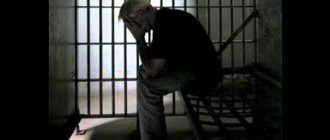Seizure of property whose criminal origin has not been proven
In 2016, in a criminal case against G., a decision was made to charge him as an accused under Part 4 of Art. 159 of the Criminal Code of the Russian Federation. According to the investigation, the criminal acts were committed by him in the period from 2013 to 2015. During the investigation, the injured party filed a civil claim, and in connection with this, the investigation took measures to identify the property belonging to G. and seize it in accordance with the provisions Art. 115 of the Code of Criminal Procedure of the Russian Federation.
Seizure of property due to long acquaintance with the accused
The investigative body established that in 2010 G. acquired ownership of a plot of land and a house, which he sold to citizen L in 2022.
In 2022, the investigation came to the conclusion that the specified property was transferred by the accused G. to the ownership of L. fictitiously in order to prevent the execution of the sentence in terms of property penalties. A petition was submitted to the court to seize the property as “actually belonging to the accused G.,” despite the fact that, according to the law, the property of the accused had already been alienated by him to L.
When justifying the legality of the arrest in court, the only evidence of the investigation was the information that G. and L. knew each other long before the transaction, were related to each other in matters of management of certain legal entities and, since the cadastral value of the land plot and the house located on it amounted to twice as much as L.'s income for 2012–2016, L. could not possibly afford such a luxurious acquisition. Meanwhile, the lawyers presented information in court that L. has been successfully carrying out business activities for more than ten years, but the investigation did not consider it necessary to find out data on his income before 2012 and for 2022.
On the conditions for seizing property under Art. 115 Code of Criminal Procedure of the Russian Federation
To seize property in accordance with Part 1 of Art. 115 of the Code of Criminal Procedure of the Russian Federation, it is necessary that the property belong to the suspect, accused or a person who, by law, is financially responsible for their actions.
The seizure of the property of these persons is imposed without setting a time limit and lasts until a final decision is made on it by the court or investigative body, without procedures for subsequent extension.
In the case I am describing, it has been reliably established that the disputed property does not belong to G., and L. in this criminal case does not have any procedural status and does not bear material responsibility for G.’s actions.
According to Part 3 of Art. 35 of the Constitution of the Russian Federation, no one can be deprived of their property except by a court decision. However, the legality of the transaction between G. and L. was not the subject of court proceedings and was not disputed by anyone in any other legal procedure. No court decision was made to invalidate the purchase and sale agreement.
By virtue of paragraph 1 of Art. 223 of the Civil Code of the Russian Federation, the right of ownership of the acquirer of a thing under a contract arises from the moment of its transfer, unless otherwise provided by law or contract; in this case, L.’s right of ownership arose from the moment of state registration of the right, i.e. from 2022
The current legislation does not generally contain such a form of property right as “actually owned by one person, but registered in accordance with the established legal procedure in the name of another person.”
The court is obliged to consider the investigation's request only within the limits of the stated requirements. The investigator filed a petition to seize the property on the grounds provided for in Part 1 of Art. 115 of the Code of Criminal Procedure of the Russian Federation, and did not ask to establish the period of arrest in accordance with the provisions of Part 3 of the same article.
However, the court, having studied the case materials and listened to the opinions of the parties, granted the petition and seized the specified property. At the same time, on his own initiative, he seized the property in accordance with Part 3 of Art. 115 of the Code of Criminal Procedure of the Russian Federation, which contains completely different grounds and conditions for the seizure of property, and established the period of seizure. Thus, the court went beyond the stated petition and replaced the functions of the prosecution.
Seizure of property in accordance with Part 3 of Art. 115 of the Code of Criminal Procedure of the Russian Federation presupposes the following mandatory conditions:
- property held by other persons is seized;
- these persons should not be suspects, accused or persons legally liable for their actions;
- seizure may be imposed only if there are reasonable grounds to believe that it was obtained as a result of the criminal actions of the suspect, accused, or was used or intended to be used as an instrument, equipment or other means of committing a crime or to finance organized criminal activity;
- when seizing the property of third parties, it is necessary to establish the validity period of this measure of procedural coercion.
As for the mandatory criminal nature of the origin of property, which is mandatory for the seizure of property under Part 3 of Art. 115 of the Code of Criminal Procedure of the Russian Federation, then both the investigation and the court did not have any evidence in this regard.
The decision to bring G. as an accused was issued in 2016, it indicated that he committed a crime in the period from 2013 to 2015. The house and land plot were acquired by G. in 2010, i.e. . 3 years before the expected date of commencement of the crime with which he is accused. Based on this, it is clear that this property could not have been acquired by G. as a result of criminal acts, as required by law.
The court's seizure order does not provide any information that the site with the house was in any way used or intended to be used “as a weapon of crime or to finance criminal activity.”
In addition, later, during the investigation, contrary to the requirements of the law, the term of seizure of the property was repeatedly extended by the court.
Position of the Supreme Court of the Russian Federation
The facts and circumstances of this case were brought to the attention of the Supreme Court of the Russian Federation, but the highest court refused to transfer the complaint for consideration in the cassation court, literally putting at risk the constitutional right of every person and citizen - the right to property.
In particular, in the Resolution of September 24, 2022, the Supreme Court of the Russian Federation indicated the following:
“... In accordance with Part 3 of Art. 115 of the Code of Criminal Procedure of the Russian Federation, seizure may be imposed on property located in the possession of other persons who are not suspects, accused or persons legally liable for their actions, if there are reasonable grounds to believe that it was obtained as a result of the criminal actions of the suspect, accused or was used or was intended to be used as a weapon, equipment or other means of committing a crime.
When deciding on the issue of seizing property belonging to L., the court indicated specific factual circumstances on the basis of which it was concluded that this property actually belonged to G. and was transferred to L. in order to prevent the enforcement of property penalties in a criminal case.
... the defense’s arguments were checked by the courts, were not confirmed and were reasonably rejected, there is no reason to disagree with the given reasons...”
That is, the guarantees of constitutional rights established in the criminal procedural law for persons who acquired property in good faith turned out to be easily overcome if the criminal prosecution authorities set the goal of depriving the legal owner of his property.
Error or habit
Taking into account the extensive practice on issues of seizure of property, a significant share of which occurred in 2022, we have identified a number of errors systematically made by the courts when making these decisions in accordance with Art. 165 of the Code of Criminal Procedure of the Russian Federation and led to the cancellation of a number of judicial decisions in the appellate instance.
In particular, the courts, when making decisions to seize property or to extend the period of seizure imposed on property:
- do not assess the source of income with which the seized property was acquired (Part 3 of Article 115 of the Code of Criminal Procedure of the Russian Federation);
- indicate that the property actually belongs to the suspect/accused, but neither the descriptive-motivational nor the operative part of the investigator’s petition, nor the materials presented to the court contain such information;
- do not check the number and details of accounts when it comes to extending the period of seizure of money accounts held in accounts with credit institutions. As a result, a court decision to extend the arrest period may indicate accounts that were not reflected in the investigation’s petition;
- seize property as belonging to the suspect/accused (Part 1 of Article 115 of the Code of Criminal Procedure of the Russian Federation), when at the court hearing it turns out that the property at the time of consideration of the petition was alienated to third parties. According to the meaning of the law, in this case (if there is no reliable information about the fictitiousness of this transaction and its recognition as invalid), the investigation must apply to the court with a new petition, this time for the seizure of property held by a third party (according to the rules of Part 3 of Article 115 of the Code of Criminal Procedure of the Russian Federation );
- extend the period of arrest imposed on property when the court decision to seize this property is cancelled.
Thus, canceling one of the decisions of the court of first instance, the Moscow City Court in its appeal ruling dated August 14, 2022 in case No. 10-12619/2017 indicated, in particular: “the court, when considering a petition to seize property, must be convinced of the reliability of the information presented investigative authorities information about the presence of this or that property, whether it meets the criteria established by the above provisions of the law.”
I would like to note that, despite the huge number of overturned decisions, the Moscow City Court, as an appellate instance, is in no hurry to “put an end to it” and reserve the last word in such disputes, but instead each time sends the case materials for a new trial to the court of first instance.
Such decisions do not at all contribute to the formation of positive practice in this category of cases, since the courts in most cases simply ignore the instructions of higher authorities and everything returns “to normal” until the next appeal hearing.
Moreover, if the decision of the court of first instance is canceled and the case is sent for a new trial, the investigation does not consider it necessary to cancel the previously issued protocol on the seizure of property, since, in their opinion, “the court in this case has not yet made a final decision, but has only sent materials cases for reconsideration. Consequently, the prosecution believes, the decision to arrest has not been “finally” cancelled.” This is the approximate meaning of the investigator’s response to the corresponding motion of the defense attorney.
Therefore, despite some positive dynamics and the reversal of a number of decisions in many cases, time passes, and throughout all the legal confrontations, the seizure of property and current accounts of companies completely paralyzes and makes the main activities of these organizations impossible.
This means that the pressure exerted by law enforcement agencies continues. And although one can state a certain percentage of victories, in essence, protecting the principal from illegal influence by applying coercive measures against him is in practice a very difficult task.
Law enforcement advice that logically follows from observing the law enforcement officer's stubborn line should probably be: “Have your property been seized? “Humble yourself.”
Of course, such a responsible preventive measure as the seizure of property should not become in the hands of the prosecution a lever of influence on citizens and on the activities of enterprises and organizations. Judicial control in this category of cases must be tightened; a thorough, scrupulous, objective and independent study of the factual circumstances set out in the petitions of the investigating authorities and all the arguments of the defense is necessary.
Letter of the law
The seizure of property in Russian legislation means a forced restriction of the owner’s rights to dispose and, in some situations, to use property. In this case, the property is confiscated by law enforcement officers and sent for storage.
If this is real estate, restrictions are usually introduced on the disposal of property: it cannot be alienated while the arrest is in effect. The owner may retain the right to use the property - rent it out, live in a house or apartment.
In a criminal case, the seizure of property plays the role of an interim measure, as stated in Articles 115 and 116 of the Code of Criminal Procedure of the Russian Federation .
In this way, the owner is forced not to hide or alienate the property so that, if necessary, it can be used to secure a judgment regarding property penalties. Time code: 1:35 When property can be seized 3:08 What does a property seizure include 7:37 What property can be seized 9:04 Methods of protection 17:47 Protocol 19:19 Deadlines 20:57 Property seizure organizations at the stage of bankruptcy 24:13 Responsibility for storage of property 26:48 Return of seized funds
What does the concept of “property” include?
According to the Code of Criminal Procedure of the Russian Federation, this concept means things of any kind. This includes cash and non-cash money;
- securities that are located on deposits and accounts in a bank or other credit organization - documentary securities;
- uncertificated securities, the ownership of which is recorded in the relevant register;
- property rights, to which the law classifies exclusive rights and claims, as described in the Code of Criminal Procedure in Article 5, paragraph 13.1; here is a narrower list than the Civil Code provides.
Sanctions in a criminal case cannot be imposed on:
- non-material benefits specified in Article 128 of the Civil Code;
- work results;
- benefits received while carrying out intellectual work, the results of which are protected;
- intellectual property;
- other property for which the Code of Civil Procedure in Article 446 prohibits foreclosure.
How is the court decision implemented?
This task is entrusted to the preliminary investigation authorities. As soon as the court makes a decision, the investigator, inquiry officer or bailiff must begin searching for the property that has been decided to be seized.
For this purpose, searches, seizures, inspections and interrogations are carried out, and requests are sent. Operational search activities are carried out if there is a corresponding order.
The process is structured according to the general rules for conducting investigative actions, described in Article 164 of the Code of Criminal Procedure.
- When executing a seizure, at least two witnesses must be present.
- Participants may include certain specialists: a commodity expert to assess the value of property; locksmith to open a locked door; criminologist to find hiding places).
- There may also be interested parties here.
Title documentation, registration certificates, warranty cards, sales and cash receipts, and other documents are confiscated or copied. This is necessary to avoid improper sanctions on the property of persons not related to the case, as well as to refute false claims about its ownership by another person.
Upon completion, a protocol is drawn up based on the rules prescribed in Articles 166 and 167 of the Code of Criminal Procedure. This document must describe the characteristics of the property, its value, or record the fact that it is missing.
The investigator, inquiry officer or bailiff is obliged to hand over a copy to the person at whose place the actions were carried out and to the person who received the property for its safekeeping. Some things must be confiscated and transferred for storage. These include money, products made of precious metals and precious stones, and scrap of such products.
Who exactly will be stored is decided by the official who carried out the arrest. The person to whom things are transferred for storage has no right to use them and is responsible for their safety.
Comment on the applicable article
In order to more competently understand the application of the article to it, leading experts in criminal law give comments that help to more thoroughly understand the meaning of the law.
The Constitutional Court separately explains Part 1 of Art. 115 of the Criminal Procedure Code. He explains that the seizure of property does not imply the complete removal of things from the use of the culprit. According to the law, the owner is limited only in the rights to alienate property. He can lose it completely if he is found guilty and he cannot pay off the resulting cost of the claim voluntarily and independently within the period established by law.
Essentially, the solution to the issue could be like this:
- The defendant is found guilty and loses his property if the required amounts are not paid.
- The defendant is found guilty, and he is not deprived of property, having voluntarily compensated for the damage.
- The person and property are acquitted, as well as everything seized is returned, and the prohibitions are lifted.
It is also worth explaining Part 3 of this law of the Russian Federation, since it involves imposing a ban on actions with property on other people.
It is worth noting that such a decision may arise if, upon checking the case materials, it was discovered that the loss caused was spent, at the direction of the culprit, on the acquisition of property. In such situations, it is possible to apply this law to other persons, even if they were not aware of such a situation.
For such persons, the abolition of this restriction is possible only if they, independently or with the help of the justice authorities, prove that the things were not acquired with criminal means. If this fact is proven, the problem will be solved. However, you will have to endure some inconveniences associated with the prohibition of registration actions.








